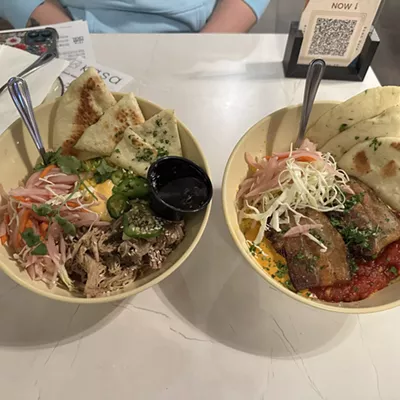
On Friday, March 25, members of the Spokane community gathered together to celebrate the grand opening of the NATIVE Project’s new Children and Youth Services Center.
Located in the West Central Neighborhood, the NATIVE Project has been providing services to the Native American community of Spokane, which is made up of members of over 300 tribes, since 1989. Today, the organization is registered as a Federally Qualified Health Center and Urban Indian Health Clinic, providing health and human services to both Native and non-Native community members.
The opening ceremony took place in the Cullooyah Center Circle of the new building and was led by NATIVE Project CEO Toni Lodge, a member of the Turtle Mountain Chippewa Tribe. It served as a thank you to the Spokane community for their support and donations. Together, $11 million was raised to build the four-story, 15,000-square-foot building that will serve the growing community of at-risk youth in Spokane with wellness, behavioral health and medical services.
“It’s about the kids,” Lodge explained. “Our first programs were kid programs. Kids come first here at the NATIVE Project. It’s our DNA.”
Every room and floor in the new building is filled with different types of symbolism, serving as spiritual reminders of the journey and values the center stands for. A traditional Kalispel sturgeon-nosed canoe sits at the entrance to the center. Hand-built by Shawn Brigman, who is a northern plateau cultural recovery artist, with harvested bark from North Idaho, the canoe “symbolizes the journey,” Lodge explained. “No matter where you go in this building, there is a reminder that we are just on a journey and we’re honoring all the people who come through our door.”
However, despite the forward momentum of this program, Lodge reminded the community that, “this is the only outpatient drug and alcohol treatment center for adolescents in Spokane County, and that should scare you.”
The number of at-risk youth in Spokane continues to grow every year, which is why organizations like the NATIVE Project are so important, she said.
Spokane City Council President Betsy Wilkerson thanked the NATIVE Project.
“This is not just a building, but a vital sanctuary of hope, deep-rooted in culture and transformative for our young people, all young people,” Wilkerson said. “The NATIVE Project has always celebrated our community’s rich diversity, while offering innovative programs that empower youth, allowing them to explore their identities and forge meaningful connections. This building now enhances that work and symbolizes the push of Spokane moving forward.”
Rick Mueller, acting deputy director for the Indian Health Service's Office of Urban Indian Health Programs, also spoke at the ceremony.
“Since its founding, the NATIVE Project has remained dedicated to addressing health and socioeconomic disparities through holistic, culturally responsive care,” Mueller said. “The work is about empowering. It’s about advocacy. It’s about ensuring that future generations have the resources and opportunities they deserve.”
The center takes a “sacred hospitality” approach to health care, which promotes wellness for the mind, body and spirit. At the center of their program is the Cullooyah Center Circle, which provides space for ceremonies, healing circles, creativity, and prevention programs. The circle was named after Francis Cullooyah, a Kalispel tribal elder who died in the fall of 2024.
Cullooyah suffered from alcoholism and after he chose sobriety, he became an advocate for substance abuse prevention and fought for a future for youth where Native traditions and values are carried on.
“He talked about getting a coalition together of all the tribes to help with the suicide, the alcoholism, the drugs, and just healthy behavioral health overall for our youth," Cullooyah’s daughter Maria told the crowd.
“His message is very clear, to love each other and to help each other and learn, and this is what this room will be used for,” Lodge explained. “This is culture. This is prevention.”






















